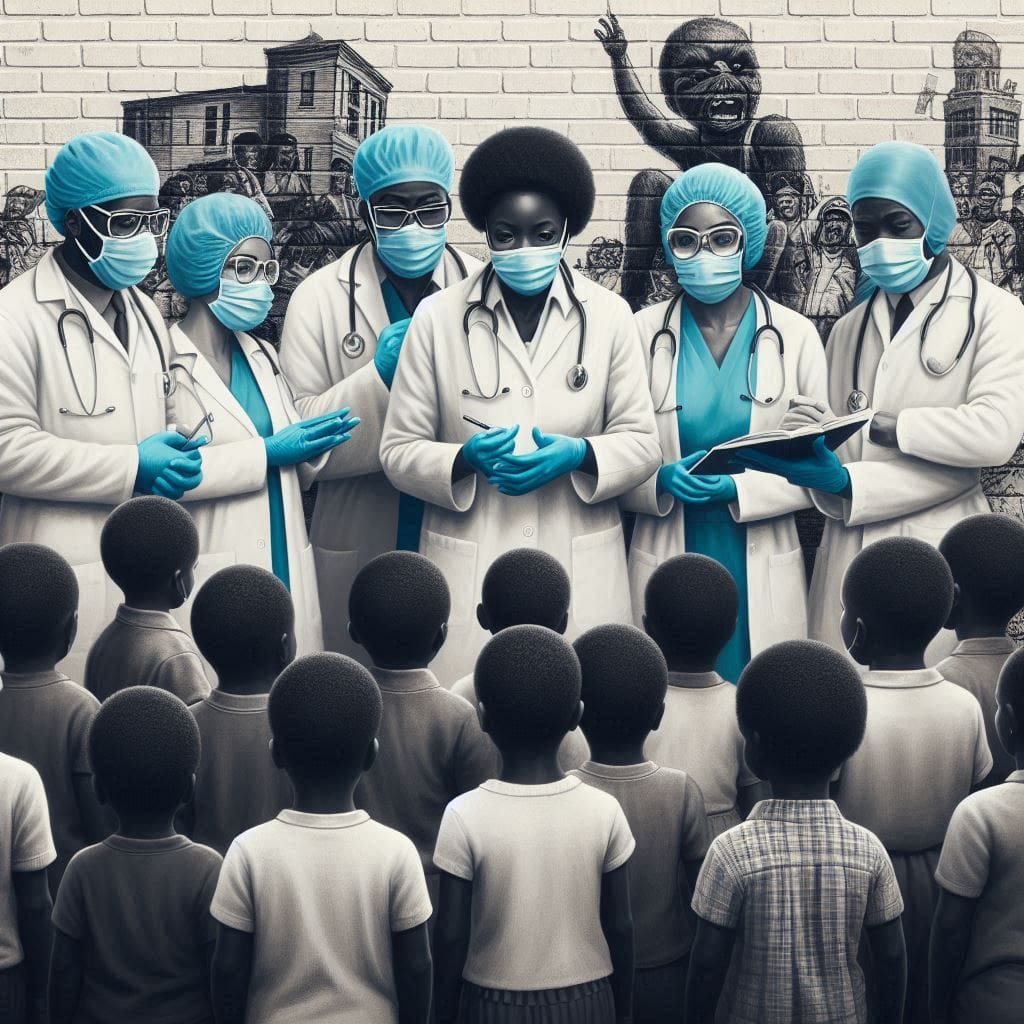Understanding Cholera
Cholera is an acute diarrhoeal illness caused by the bacterium Vibrio cholerae. It’s a serious public health concern, particularly in areas with inadequate access to clean water and sanitation.
While not a new disease, recent outbreaks in Nigeria have raised awareness of the importance of prevention and early intervention.
This article provides a comprehensive overview of Cholera, including:
- Causes and Transmission
- Symptoms and Diagnosis
- Treatment and Rehydration
- Complications and Prevention Measures
- The Current Situation in Nigeria (2024)
- Resources and Support
How Does Cholera Spread?
Contaminated Water: The primary cause of Cholera transmission is contaminated water. This can happen when water sources are polluted with the Vibrio cholerae bacteria from human waste.
Poor Sanitation: Inadequate sanitation facilities like open defecation or overflowing latrines can further contaminate water sources and the environment, increasing the risk of contracting Cholera.
Indirect Contact: Consuming raw or undercooked seafood, unwashed fruits and vegetables exposed to contaminated water, or close contact with an infected person’s stool can also spread Cholera.
Risk Factors:
- Young children are more susceptible to severe dehydration from Cholera.
- People living in poverty and overcrowded conditions have a higher risk due to limited access to clean water and sanitation.
- Individuals with weakened immune systems, such as those with HIV/AIDS or malnutrition, are more vulnerable to severe illness.
Symptoms of Cholera
Cholera symptoms can develop rapidly, anywhere from 12 hours to 5 days after exposure. However, many people infected with Cholera won’t experience any symptoms at all (asymptomatic carriers).
Common Symptoms Include:
- Profuse watery diarrhea
- Vomiting
- Abdominal cramps
- Dehydration (leading to dry mouth, thirst, and decreased urination)
- Muscle weakness
In severe cases, Cholera can lead to:
- Rapid dehydration
- Shock
- Coma
- Death (if left untreated)
Seeking Medical Attention and Early Diagnosis for Cholera
If you experience symptoms consistent with Cholera, it’s crucial to seek immediate medical attention. Early diagnosis and treatment significantly improve the chances of a full recovery.
Doctors typically diagnose Cholera based on a combination of:
- Clinical symptoms
- Stool tests to detect the presence of Vibrio cholerae bacteria
Treatment for Cholera
The primary goal of Cholera treatment is to prevent dehydration and restore lost electrolytes. This typically involves:
- Oral rehydration therapy (ORT): Drinking a specially formulated solution containing water, electrolytes, and sugar to replenish fluids and minerals lost due to diarrhea and vomiting.
- Intravenous (IV) fluids: In severe cases, intravenous fluids may be necessary to rapidly rehydrate the patient.
- Antibiotics: While not a substitute for rehydration, antibiotics may be prescribed to shorten the illness and reduce the risk of further transmission.

Crucial Measures for Cholera Control
There are several effective ways to prevent the spread of Cholera:
- Safe Drinking Water: Ensure you drink clean, treated water or properly boiled water. Consider using water purification tablets if unsure about the source.
- Proper Sanitation: Practice good hygiene and sanitation habits, including frequent handwashing with soap and clean water, especially after using the toilet and before preparing or eating food.
- Safe Food Handling: Wash fruits and vegetables thoroughly before consumption. Cook seafood thoroughly and avoid undercooked or raw shellfish.
- Improved Sanitation Infrastructure: Investing in proper sanitation infrastructure, including clean water sources and adequate waste disposal systems, is crucial for long-term prevention in communities at risk.
Cholera in Nigeria (2024): A Cause for Concern
Nigeria has unfortunately been experiencing a rise in Cholera cases in 2024. As of June 19, 2024, the Nigeria Centre for Disease Control and Prevention (NCDC) has reported:
- Over 1,141 suspected cases across the country.
- 65 confirmed cases with 30 deaths from January to June.
- Increased cases reported during the rainy season due to higher risks of water contamination.
The NCDC has issued public health advisories urging Nigerians to be vigilant and practice preventive measures.
Resources and Support
If you’re concerned about Cholera in your community, here are some resources to stay informed
Stopping Cholera Together
Alongside national efforts, local communities play a vital role in controlling the spread of Cholera. Here’s how you can contribute:
- Community awareness: Organize educational campaigns to inform people about Cholera symptoms, prevention methods, and the importance of seeking medical attention.
- Hygiene Promotion: Promote proper handwashing practices and the use of latrines. Support initiatives to improve sanitation facilities in vulnerable areas.
- Water Treatment: If access to clean water is limited, encourage boiling water or using water purification tablets.
- Collaboration: Work with local healthcare providers, government agencies, and NGOs to strengthen the response efforts.

International Support and Global Efforts
Cholera outbreaks are a global concern. International organizations like the World Health Organization (WHO) and UNICEF play a crucial role in supporting affected countries. Their efforts include:
- Deploying emergency medical teams: Providing healthcare professionals and supplies to support overwhelmed healthcare systems during outbreaks.
- Cholera surveillance: Monitoring outbreaks and tracking the spread of the disease.
- Vaccination Programs: While not a perfect solution, oral cholera vaccines can offer additional protection, particularly for healthcare workers and high-risk populations.
- Long-Term Solutions: Supporting infrastructure development to improve access to clean water and sanitation in vulnerable regions.
Staying Informed and Taking Precautions
Cholera is a preventable disease. By understanding the causes, symptoms, and prevention methods, we can all play a role in protecting ourselves and our communities. Here are some key takeaways:
- Practice good hygiene – Frequent handwashing with soap and clean water is essential.
- Ensure safe drinking water – Drink only treated or boiled water.
- Maintain proper sanitation – Use toilets and dispose of waste hygienically.
- Be aware of the risks – Be particularly vigilant during rainy seasons and in areas with poor sanitation.
- Seek immediate medical attention – If you experience Cholera symptoms, getting prompt treatment is crucial.
By staying informed and taking the necessary precautions, we can help control the spread of Cholera and ensure a healthier future for all.
Additional Resources:
- Nigeria Centre for Disease Control and Prevention (NCDC)
- World Health Organization (WHO)
- UNICEF Nigeria
Disclaimer: This information is intended for general knowledge and should not be a substitute for professional medical advice. Always consult a healthcare professional if you have any concerns about your health.



